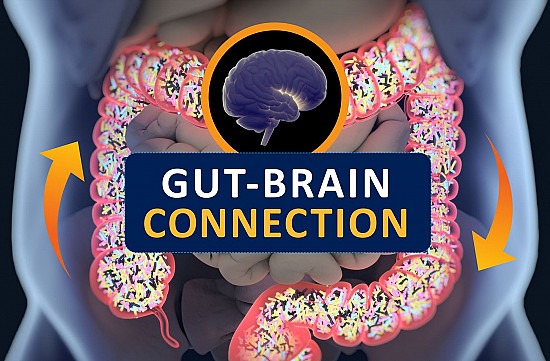
Health Care tips: Have you ever noticed that when you are very nervous or happy, you feel a different sensation in your stomach. It feels like there is a tickling sensation. Sometimes our emotions also affect our appetite. But in reality, there are no butterflies in the stomach and what do our emotions have to do with our digestive system? So let us tell you that our brain and gut have a direct connection (Gut-Brain Connection). This is why the gut is also called the second brain.
Why is the gut called the second brain? (Gut-Brain Connection)
Do you know why this is so? There is a very special reason behind calling the gut the second brain of our body. Usually we believe that our brain takes all the decisions of our body, which is true to a large extent. But let us tell you that the nerves are the most directly connected between the gut and the brain. These nerves tell the brain about the condition of the gut and the intestines about the condition of the brain. Therefore, due to many emotions like restlessness and nervousness, something happens in your stomach.
You can understand this in this way that there is a two-way communication between the brain and the gut. That is, not only the brain sends signals, but the gut also sends signals to the brain. The microbes present in the gut have a very deep impact on these messages. Along with digesting our food, they also affect many chemicals produced in the body. They control mood and emotions. That is why the gut is called the second brain.
From this you must have understood how important it is to keep the intestines healthy. Therefore, we are going to tell you some tips which can prove beneficial for your digestion.
Healthy Gut Tips
- Eat probiotics- Probiotics are good bacteria found in our intestines. They can be found in yogurt, fermented food items such as sauerkraut and kimchi, and probiotic-rich foods.
- Eat prebiotics- Prebiotics are a type of fibre that promotes the growth of good bacteria in the gut. They are found in fruits, vegetables, whole grains and pulses.
- Manage stress- Stress can negatively affect gut health. So practice stress management techniques such as yoga, meditation, and deep breathing.
- Get enough sleep – Getting enough sleep is important for our overall health, and it can also impact gut health.
- Do not self-medicate- Antibiotics can kill all the bacteria living in the gut, both beneficial and harmful. If you need to take antibiotics, talk to your doctor and follow their instructions.
--Advertisement--

 Share
Share



